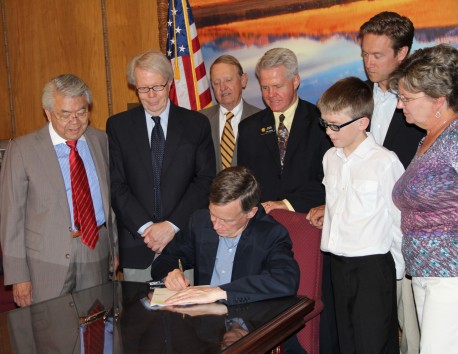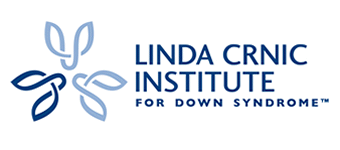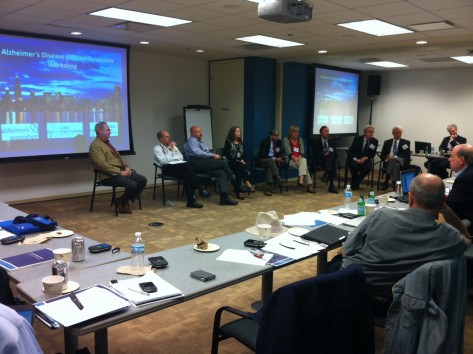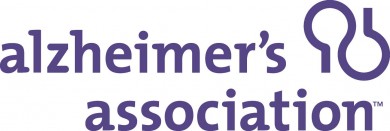Alzheimer’s initiative receives $250,000 from state of Colorado
July 31st, 2014 by Global Down Syndrome Foundation

Donate to the Alzheimer’s research initiative today
The Global Down Syndrome Foundation’s Alzheimer’s disease initiative received a big boost from the state of Colorado this year when Governor John Hickenlooper signed a bill passed by the state legislature that allocates $250,000 to the first Alzheimer’s disease research & clinical center in Colorado.
Senate Bill 14-211 was approved 35-0 by the Colorado Senate and 62-3 by the Colorado House, and was signed into law by Governor Hickenlooper on June 5th. The state’s initial investment of $250,000 will be received in fiscal year 2014. “It is declared to be the policy of this state to achieve the maximum practical degree of care and treatment for persons suffering from Alzheimer’s and related diseases,” the bill states.
The success of the bill is credited to Governor Hickenlooper and bill co-sponsors Senator Michael Johnston, Senator David Balmer, Rep. Dickey Hullinghorst and Rep. Mark Waller. A key issue for legislators is addressing the fact that Colorado is one of the fastest-growing states in terms of Alzheimer’s disease as a percentage of the population. Currently, an estimated 200,000 people in Colorado and adjacent states have Alzheimer’s, at an estimated societal cost of $17 billion a year.
 The new Center is housed at the University of Colorado School of Medicine at the Anschutz Medical Campus in Aurora. It is the first such center in a 600-mile radius of Denver and a much needed resource for families in the region.
The new Center is housed at the University of Colorado School of Medicine at the Anschutz Medical Campus in Aurora. It is the first such center in a 600-mile radius of Denver and a much needed resource for families in the region.
Huntington Potter, Ph.D., is the founder and director of the Center and was recruited by the Global Down Syndrome Foundation, the Linda Crnic Institute for Down Syndrome, and the Department of Neurology at CU.
Potter is a renowned Alzheimer’s disease researcher who discovered the mechanistic relationship between Alzheimer’s disease and Down syndrome. Unfortunately, 100% of people with Down syndrome have the brain pathology of Alzheimer’s disease and an estimated 50% will develop dementia symptoms before age 50.
People with Down syndrome by definition are born with three copies of chromosome 21 instead of two. People with Alzheimer’s disease have many cells with three copies of chromosome 21. As the amyloid precursor protein gene (APP) resides on chromosome 21, these trisomy 21 cells produce excess APP and its product, the Alzheimer beta peptide, contributing to the development of Alzheimer’s disease pathology.
Recognizing that these conditions are two sides of the same coin and studying them together will hasten the development of new treatments for both. The key is to discover why many people with Down syndrome and some people with typical age-related Alzheimer’s disease can have the pathology in the brain but not develop dementia.
“The support of our state leadership is crucial to ensuring this center’s success,” said Michelle Sie Whitten, executive director of the Global Down Syndrome Foundation, “but we will need broad-based community support as well. Global and CU have a daunting but important task in front of us – to raise awareness and endowed funds to ensure that people in this region with Alzheimer’s disease, including those with Down syndrome, can get the best care and participate in the best trials.”
The CU Department of Neurology has recruited Jonathan Woodcock, M.D., who has already seen close to 1,000 patients, including people with Down syndrome. Potter is also launching the Center’s first clinical trial looking at Leukine in people with early onset of Alzheimer’s disease after his lab discovered the protein that likely explains why people with rheumatoid arthritis rarely get Alzheimer’s disease.
“Our first goal is to create — within the next three years — a comprehensive, nationally recognized Alzheimer’s disease patient care center and research institute that will serve the people of Colorado and surrounding states,” Potter said.
To this end, Potter has submitted a grant to the National Institute on Aging (NIA) for recognition as an Alzheimer’s Disease Research Center of excellence.
Currently, there are 27 NIA-designated Alzheimer’s Disease Research Centers in the United States. An estimated 5.4 million Americans are currently living with Alzheimer’s disease, a number that is expected to more than double by 2050. Annual costs related to Alzheimer’s and other dementias exceed $200 billion.
In 2013, the Global Down Syndrome Foundation, the Linda Crnic Institute and the national Alzheimer’s Association established the Down Syndrome-Alzheimer’s Disease Investigator Program. The program has funded $1.2 million in grants to investigators around the world.
Global, Alzheimer’s Association, Crnic Institute Announce $1.2 Million in Alzheimer’s-Down Syndrome Research Grants
October 29th, 2013 by Global Down Syndrome Foundation
The Global Down Syndrome Foundation, the Alzheimer’s Association, and the Linda Crnic Institute for Down Syndrome have awarded $1.2 million in research grants to five scientists for innovative investigations that explore the development of Alzheimer’s disease in individuals with Down syndrome. The goal is to eventually translate the findings into improved treatments for all people with Alzheimer’s.
The organizations are supporting this growing area of study through a new joint grants initiative called “Understanding the Development and Devising Treatments for Alzheimer’s Disease in Individuals with Down Syndrome.”
“The Alzheimer’s Association is very interested in understanding why people with Down syndrome are at such high risk for Alzheimer’s, and how it relates to other variations of the disease, so that we can identify new therapies to treat Alzheimer’s in both the Down syndrome and typical populations,” said Maria Carrillo, Ph.D., Alzheimer’s Association vice president of Medical and Scientific Relations. “Research in this population may also help us develop predictive tools for Alzheimer’s and design more effective clinical trials.”
“Investing with the Alzheimer’s Association has been so rewarding. The science our joint initiative is funding is of the highest caliber, and each grant approaches understanding, treating or preventing Alzheimer’s in people with Down syndrome from a very different angle. If initial results are promising, we hope that the National Institutes of Health will continue to fund this excellent science,” said Michelle Sie Whitten, executive director of the Global Down Syndrome Foundation.
Read more about the grant announcement, and learn about the researchers and their projects.
$1.2 Million in Grants for Alzheimer’s, Down Syndrome Research
November 29th, 2012 by Global Down Syndrome Foundation
![]() The Alzheimer’s Association, the Linda Crnic Institute for Down Syndrome and the Global Down Syndrome Foundation today launched a new research initiative to better understand the development of Alzheimer’s disease in individuals with Down syndrome (DS) and translate the research into improved treatments for people at risk to develop Alzheimer’s.
The Alzheimer’s Association, the Linda Crnic Institute for Down Syndrome and the Global Down Syndrome Foundation today launched a new research initiative to better understand the development of Alzheimer’s disease in individuals with Down syndrome (DS) and translate the research into improved treatments for people at risk to develop Alzheimer’s.
 The organizations are making a total of $1.2 million available for new research projects, and have issued a Request for Applications (RFA) titled Understanding the Development and Devising Treatments for Alzheimer’s Disease in Individuals with Down Syndrome.
The organizations are making a total of $1.2 million available for new research projects, and have issued a Request for Applications (RFA) titled Understanding the Development and Devising Treatments for Alzheimer’s Disease in Individuals with Down Syndrome.
![]() “Through this new initiative, we hope to better understand the mechanisms that lead to Alzheimer’s in people with Down syndrome in order to get us a big step closer to new treatments,” said William Thies, Ph.D., Alzheimer’s Association chief medical and scientific officer. “The eventual goal is to advance the charge toward better Alzheimer’s therapies for people with Down syndrome and for people without it.”
“Through this new initiative, we hope to better understand the mechanisms that lead to Alzheimer’s in people with Down syndrome in order to get us a big step closer to new treatments,” said William Thies, Ph.D., Alzheimer’s Association chief medical and scientific officer. “The eventual goal is to advance the charge toward better Alzheimer’s therapies for people with Down syndrome and for people without it.”
“We’re pleased to have leaders that represent a significant scientific brain trust leading this program, and we are grateful to have the scientific review apparatus and peer reviewers provided by the Alzheimer’s Association,” said Michelle Sie Whitten, Executive Director of the Global Down Syndrome Foundation.
To read the full press release, click here.
Wellcome Trust Gives Nearly $4 Million for Alzheimer’s/Down Syndrome Research
November 5th, 2012 by Global Down Syndrome Foundation
 The Wellcome Trust has awarded the London Down Syndrome Consortium with 2.5 million pounds (nearly $4 million) for a Strategic Award to understand the processes involved in Alzheimer’s disease that often occurs as people with Down syndrome age.
The Wellcome Trust has awarded the London Down Syndrome Consortium with 2.5 million pounds (nearly $4 million) for a Strategic Award to understand the processes involved in Alzheimer’s disease that often occurs as people with Down syndrome age.
Dr. André Strydom, the Principal Applicant from University College London, said: “This project brings together researchers from different disciplines to tackle the cognitive problems associated with Down Syndrome. We want to understand why people with Down Syndrome are much more likely than the general population to develop Alzheimer’s disease (dementia), and we will also look for markers that can identify those who go on to develop dementia before they present with problems.”
The project, which will be a five-year study starting in December, involves research by leading geneticists, psychiatrists and neuroscientists who will be working closely with the Down’s Syndrome Association and the Down’s Syndrome All Party Parliamentary Interest Group. The project also includes North American and European collaborators to ensure the research is standardized for international programs.
The ties between Alzheimer’s disease and Down syndrome are getting fresh attention around the globe.
In the United States, the Global Down Syndrome Foundation and the Alzheimer’s Association hosted the first-ever scientific workshop to bring together researchers from both fields to plot how the two conditions can be studied together.
And the Linda Crnic Institute for Down Syndrome, the first academic home for Down syndrome research in the U.S. and a major source of the Global Down Syndrome Foundation’s support, recently hired renowned Alzheimer’s researcher Dr. Huntington Potter.
To read more about the Wellcome Trust’s research award, click here.
The Wellcome Trust is a global charitable foundation dedicated to achieving improvements in health by supporting the brightest minds in biomedical research and the medical humanities.
Scientific Workshop Discusses Alzheimer’s/Down Syndrome Research
September 14th, 2012 by Global Down Syndrome Foundation

Down syndrome and Alzheimer's panelists at the Chicago workshop
The Global Down Syndrome Foundation and the Alzheimer’s Association hosted the first-ever workshop to bring together key scientists from the fields of Down syndrome and Alzheimer’s research this week in Chicago.
With the overwhelming evidence of a strong connection between Down syndrome and Alzheimer’s, and acceptance of the idea that studying people with Down syndrome is key to discovering a cure for Alzheimer’s, the workshop aimed to plot the direction of research in this emerging field.
Down syndrome occurs when a person has three copies of the 21st chromosome instead of the normal two. Studies show that one the main genes responsible for Alzheimer’s disease is on the 21st chromosome and is therefore more active in individuals with Down syndrome. Virtually 100 percent of people with Down syndrome will develop the pathology in the brain associated with Alzheimer’s disease, even if it’s not always accompanied by the same memory loss.
By fostering a closer community of research, those studying Alzheimer’s will gain the most profoundly fitting population to help find a cure, and those studying Down syndrome may obtain access to funding that didn’t exist before. Down syndrome is the least-funded genetic condition by the National Institutes of Health, despite being the most frequently occurring chromosomal disorder, affecting 1 in every 691 live births in the U.S., according to the Centers for Disease Control and Prevention.
We’ll have more details about the results of the workshop soon.




 Experience our inspirational and groundbreaking videos and photos. Our children and self-advocates are beautiful AND brilliant!
Experience our inspirational and groundbreaking videos and photos. Our children and self-advocates are beautiful AND brilliant! Make sure your local Representatives are on the Congressional Down Syndrome Task Force.
Make sure your local Representatives are on the Congressional Down Syndrome Task Force.